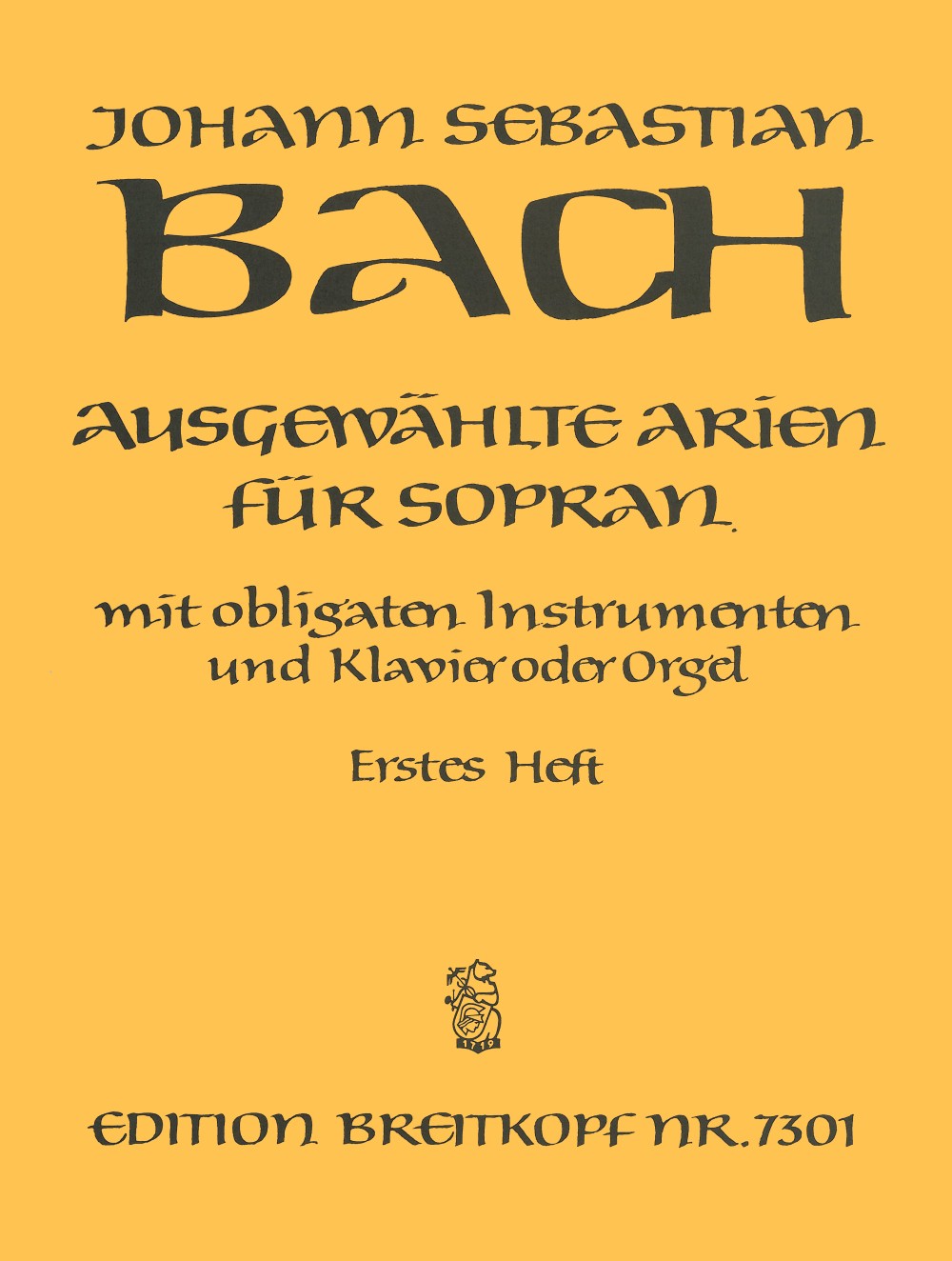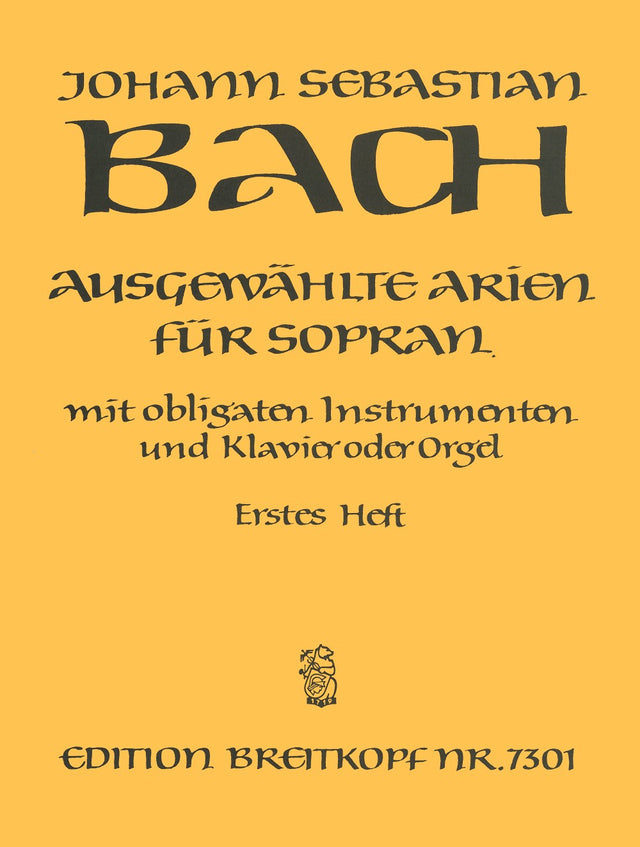Bach: Selected Arias for Soprano - Volume 1
Expected to ship in 1-2 weeks.
- Composer: Johann Sebastian Bach (1685-1750)
- Editor: Eusebius Mandyczewski (1857-1929)
- Format: Set of Parts
- Instrumentation (this edition): Violin, Soprano, Piano / Organ
- Originally for: Piano, SATB Choir, Soprano, Orchestra, Bass, Chamber Orchestra
- Work Language: German
- ISMN:
- Size: 9.1 x 12.0 inches
- Pages: 96
Works:
- "Seufzer, Traenen, Kummer, Not" from Ach Gott, vom Himmel sieh darein (Cantata for Trinity II), BWV 2
- "Auch mit gedaempften, schwachen Stimmen" from Auch mit gedämpften, schwachen Stimmen, BWV 36
- "Hoechster, was ich habe" from Brich dem Hungrigen dein Brot (Cantata for the 1st Sunday after Trinity), BWV 39
- "Ich ende behende mein irdisches Leben" from Selig ist der Mann (Cantata for the 2nd Day of Christmas), BWV 57
- "Ich bin vergnuegt in meinem Leiden" from Ach Gott, wie manches Herzeleid (Cantata for Sunday after New Year's Day), BWV³ 58.2, BWV 58
- "Ich nehme mein Leiden mit Freuden auf mich" from Die Elenden sollen essen (Cantata for the 1st Sunday after Trinity), BWV 75
- "Gerechter Gott, ach rechnest du" from Was soll ich aus dir machen, Ephraim? (Cantata for Trinity XXII), BWV 89
- "Ich will auf den Herrn schaun" from Wer nur den lieben Gott läßt walten (Cantata for the 5th Sunday after Trinity), BWV 93
- "Es halt‘ es mit der blinden Welt" from Was frag ich nach der Welt (Cantata for Trinity IX), BWV 94
- "Hoert, ihr Augen, auf zu weinen" from Was Gott tut, das ist wohlgetan (Cantata for Trinity XXI), BWV 98
- "Die Armen will der Herr umarmen" from Ärgre dich, o Seele, nicht (Cantata for the 7th Sunday after Trinity), BWV 186
- "Gott versorget alles Leben" from Es wartet alles auf dich (Cantata for the 7th Sunday after Trinity), BWV 187
Publishers use a lot of words to describe what they sell, and we know it can be confusing. We've tried to be as clear as possible to make sure you get exactly what you are looking for. Below are descriptions of the terms that we use to describe the various formats that music often comes in.
Choral Score
A score for vocalists that only contains the vocal lines. The instrumental parts are not there for reference. Generally, cheaper than a vocal score and requires multiple copies for purchase.
Facsimile
Reproductions of the original hand-written scores from the composer.
Full Score
For ensemble music, this indicates that the edition contains all parts on a single system (there are not separate parts for each player). In larger ensembles, this is for the conductor.
Hardcover
Hardbound. Generally either linen-covered or half-leather.
Orchestral Parts
Similar to a wind set, this is a collection of parts. In the case of strings, the numbers listed are the number of copies included, though generally these are available individually (often with minimum quantities required).
Paperback
When publishers offer multiple bindings (e.g. hardcover) or study scores, this is the "standard" version. If you're planning to play the music, this is probably what you want.
Performance / Playing Score
A score of the music containing all parts on one system, intended for players to share. There are not separate parts for each player.
Set of Parts
For ensemble music, this indicates that there are separate individual parts for each player.
Solo Part with Piano Reduction
For solo pieces with orchestra, this is a version that contains a piano reduction of the orchestra parts. For piano pieces, two copies are typically needed for performance.
Study Score
A small (think choral size) copy of the complete score meant for studying, and not playing. They make great add-ons when learning concertos and small chamber works.
Vocal Score
A score prepared for vocalists that includes the piano/organ part or a reduction of the instrumental parts.
Wind Set
For orchestral music, this is a collection of wind and percussion parts. The specific quantities of each instrument are notated.
With Audio
In addition to the printed music, the edition contains recordings of the pieces. This may be an included CD, or access to files on the internet.
With / Without Fingering (Markings)
Some publishers prepare two copies - a pure Urtext edition that includes no fingering (or bowing) suggestions and a lightly edited version that includes a minimal number of editorial markings.



